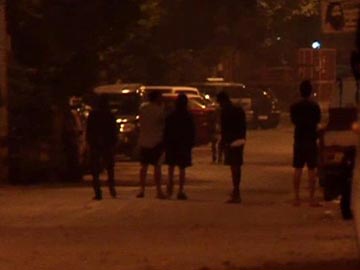Muzaffarpur, Mar 18: Prisoners in the central jail here are working overtime to produce facemasks to prevent the deadly COVID-19 striking. In addition to providing protection to fellow inmates and prison staff, the produce will be shared with nine district and sub jails falling under Muzaffarpur Central Prison as well, Deputy Superintendent of the jail Sunil Kumar Maurya said. From supplications at places of worship to hectic activities at the biggest hospital, this north Bihar district is witnessing invocation of all powers, human and otherwise, to prevent novel coronavirus hitting them.
Although nobody has so far tested positive for the dreaded virus in Bihar, where the state government has imposed a semi-lockdown as a preventive measure, Muzaffarpur which hit the headlines last year for losing close to 200 children to an outbreak of brain fever seems determined not to fall prey to yet another virulent affliction.
On making of facemasks by about 50 prisoners, the Deputy Superintendent of the jail said, "We have had a tradition of producing fabric at the Muzaffarpur Central Jail. An idea was floated why not use the skills acquired for producing masks which are in great demand but in short supply.
The local administration seems impressed with the endeavour of the social outcasts to rise to a global challenge.
"It is a welcome step. Despite all precautions, we never know who is going to catch the infection at which place. The efforts by prisoners to protect themselves and the staff manning their premises is laudable. "Full assistance will be provided to Central Jail authorities in supply of the masks to other prisons," Sub Divisional Magistrate (East) Kundan Kumar said.
A conservative town inhabited by a deeply religious citizenry, Muzaffarpur is also witnessing prayer congregations at temples and mosques in keeping with the tradition here of people of all faiths coming together when faced with a major challenge.
The Garib Nath temple, a renowned shrine devoted to Lord Shiva which attracts devotees from far and wide, is witness to the power of faith trumping the biggest fears as the footfall seems to have increased since the outbreak.
The temples mahant Vinay Pathak says, "faith can move mountains. People come here in search of strength to face a crisis which has caused worldwide scare. We advise the visitors to conduct regular 'havans' at their houses just like we have been performing here. "The smoke emitted by burning of purified offerings cleanses the air and, who knows, could be an antidote as well," Pathak added.
Chanting of 'Mahamrityunjay mantra', which the faith believe to be potent enough to dispel illness and untimely death, is taking place round the clock at the shrine in addition to 'havans', the mahant said.
Just a few yards away stands the Chhata Chowk mosque where large number of devotees appear in skull-caps to offer namaz.
"It is a pandemic threatening to engulf the entire world and dua (prayers) are needed as much as dawa (medicines). May God, who is one, listen to the common wish expressed by humanity in myriad ways," says Imtiaz Ahmed, a devout local resident.
Meanwhile, the health authorities are busy with their own efforts, not leaving prevention and cure to divine intervention.
District Medical Officer Shailesh Kumar Singh says a total of 42 people here who have come from abroad, have been tested but their results have been negative.
"Nonetheless, a five-bed special ward has been set up at the Sadar Hospital, manned by medical staff armed with a special kit comprising medicines and other logistics required for primary care of those with suspected symptoms," he said.
The SKMCH referral hospital, which bore the brunt of last years brain fever epidemic accounting for over 120 deaths is fully geared up to meet the latest challenge.
SKMCH superintendent Sunil Shahi says "we have a 30- ward insulation ward ready. Samples of patients with suspected symptoms are being routinely sent to RMRI, Patna. We appeal to all to remain alert, but avoid panic."






Comments
Add new comment